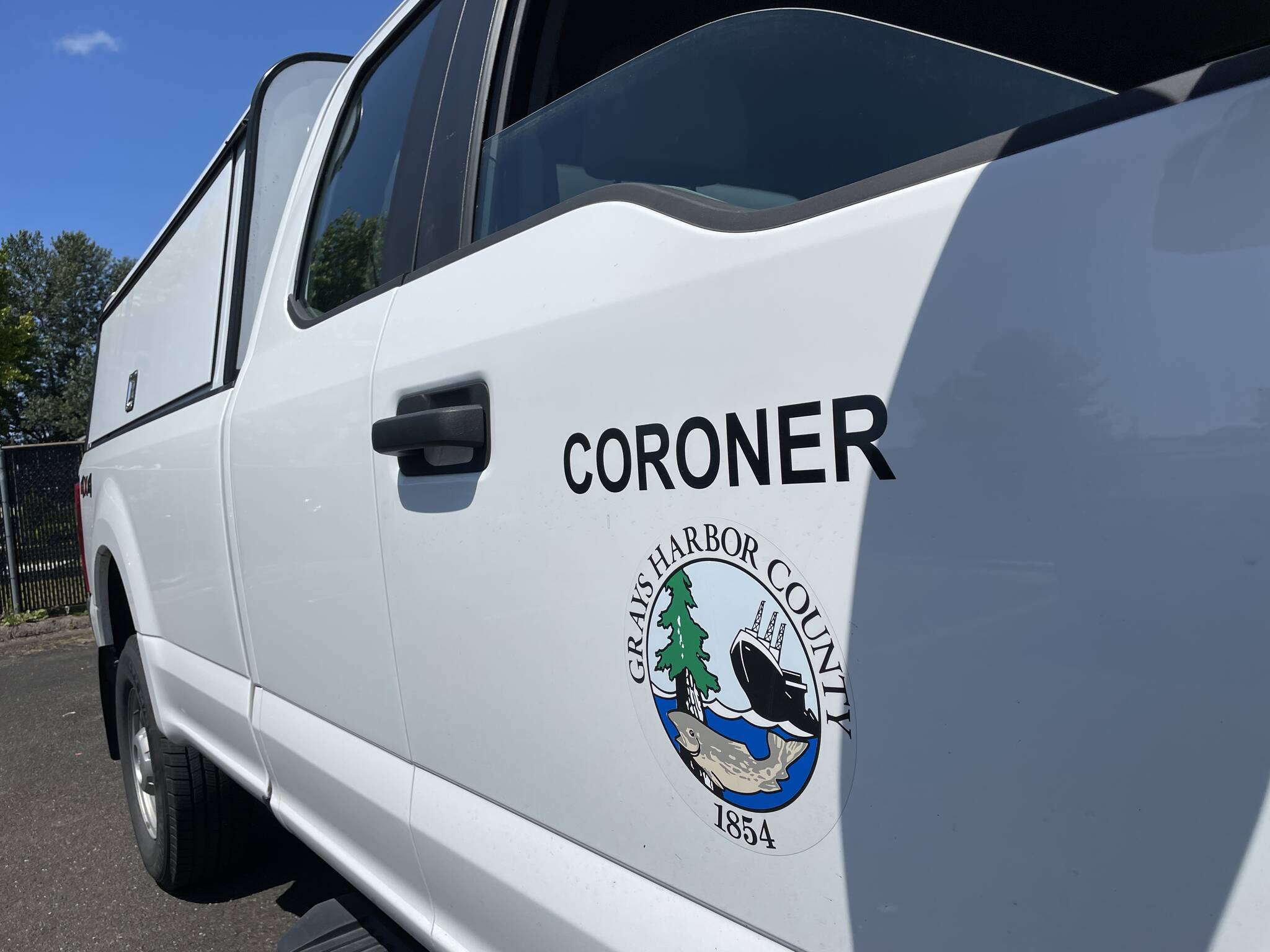The Grays Harbor County Coroner’s Office has had a busy few months: moving offices, increasing staff, all while going to dozens more call-outs than previous years as Coroner George Kelley redefines the role.
Kelley, who took the post at the beginning of the year, said his view of the coroner is one that’s out there helping the community as they deal with the ultimate finality, wherever and whenever it occurs in the county — while deaths are slightly down, overdose deaths are considerably up, Kelley said.
“My goal here when I came in was to assist law and fire and be there for the families as much as we can,” Kelley said in an interview in their new offices in one of the county’s office buildings. “My preference is to be on scene.”
The coroner’s office, previously located in Harbor Regional Health’s Warren Medical Services Building, has been relocated over the spring as Kelley sought a space more suited to dealing with the needs of the outfit as laid out by the state.
“The hospital was fantastic with their support,” Kelley said. “I really appreciated everything they had done for all those years. Unfortunately that space wouldn’t have met the standards for accreditation.”
Requirements like a separate room for meeting families, something the new office space, located in the Pearsall Building has, will help the coroner’s office as it prepares for the state’s reaccreditation process, Kelley said. It’s also more accessible to the public, something Kelley has prioritized.
“Since we’ve been here we’ve had more people come into our office than we had in the first four months in the other office,” Kelley said.
It also has a more modern internet infrastructure than the previous office, which helps their work immeasurably, Kelley said.
“I have some goals and we’re slowly meeting those goals. The goal posts are always moving,” Kelley said. “I’m very happy with our achievements. As we meet those achievements, I set new goals.”
New staff onboard
The office has hired three new employees, starting them in the last few weeks, which will help ease tasks for the three employees already there, Kelley said, including himself.
“I’ve been running with three people since Feb 1. It’s been Ryan (Meister) and Dave (McManus) and I. There’s still 24 hours in every single day. We can’t schedule when we’re going to get called,” Kelley said. “Are we fully staffed? Not by any means. I could have another two full time people here and we’d still be busy.”
As the staff gets onboarded, Kelley said he’s looking forward to what they bring to the office and to spreading the workload.
“There’s training. There are standards for coroners offices that the state of Washington set two years ago,” Kelley said. “Our county is large.”
Hannah Friberg, one of the new joins, said this is her second time applying for the position. Her medical training as an EMT will make her a valuable resource for the office, Kelley said.
“I have been very interested because I like the investigation part,” Friberg said. “I’ve always been interested in that. I like figuring out why things happen and why things take place.”
Friberg, a self-described CSI enthusiast, said the job is a lot more interesting and involved than even she anticipated.
“I was surprised by what we can command in a scene. I didn’t know the inner workings of how we work with other departments,” Friberg said. “I would love to learn as much as possible about this field. I’d love to stay in it for the foreseeable future.”
Finding remains a home
The office currently has about 90 sets of cremated remains that it’s seeking to find a final resting place for as time allows, said Ryan Meister, the chief deputy coroner.
“We go through old records. A lot of them we run through with Tom Keating with the Missing in America Project,” Meister said. “We see if they were a veteran.”
The MIAP helps find and inter veterans’ remains. The office was recently able to identify and inter one such set of remains at the veteran’s cemetery in Tahoma, Meister said. It’s important to find a final resting place for all of the cremated remains the coroner’s office has come into possession of, Kelley said.
“Over the years they’ve kind of built up,” Kelley said. “It’s one of my things that I want to get these people into a final resting place.”
Tracking down remaining family for remains can be difficult, Meister said; families could be across the country, as was recently the case, or entirely died off. The office uses databases with information like birth or death records, or social media platforms to locate possible family members, Meister said.
“We had a name. We had nothing beyond that. Through a lot of search techniques, we found he had some relatives on the East Coast,” Kelley said. “We found he was a military veteran, which qualified him to be interred up at Tahoma.”
Kelley said his enthusiasm for the role is unfinished.
“I love this job,” Kelley said. “I look forward to coming to work every day — not because of the subject matter, but because I’m hoping to really make a difference.”
Contact Senior Reporter Michael S. Lockett at 757-621-1197 or mlockett@thedailyworld.com.


